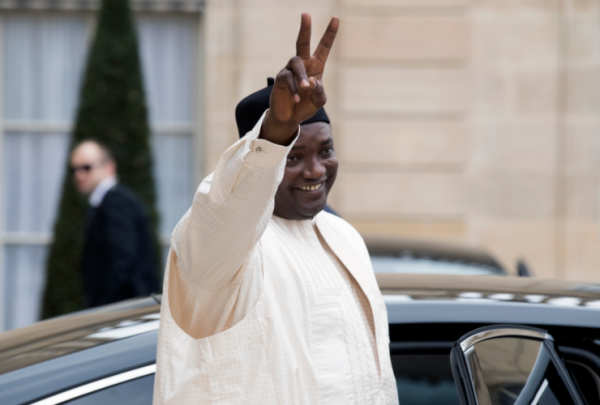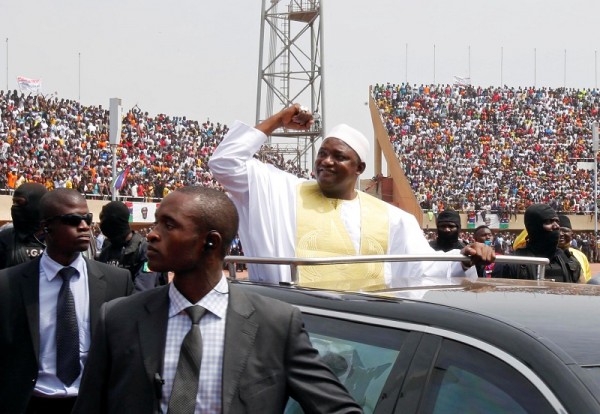Gambian President Yahya Jammeh on Wednesday 22 July warned journalists against tarnishing Gambia’s image, in a statement to state-owned GRTS television.
“Any journalist who thinks that he or she can write whatever he or she wants, and go free, is making a big mistake”, Jammeh declared. “If anybody is caught, he will be severely dealt with.”
IPI believes that President Jammeh’s recent threatening public statement to journalists is just another sign of the climate of fear in which journalists must work in Gambia.
“President Jammeh’s comments would be unacceptable in any country, but they are made worse because they come from a President who is deeply prejudiced against an independent media,” said IPI Director David Dadge. “The Gambian authorities must immediately drop all charges against the seven journalists, and implement all previous rulings of the ECOWAS community court.
“Further, we call on the international community to roundly condemn Gambia’s treatment of the media, bearing in mind that when a government fails to protect the rights of a free press, it is signalling that other fundamental human rights are also in grave danger.”
Meanwhile, the trial continues for seven prominent Gambian journalists accused on six counts of charges including conspiracy to seditious publication, seditious publication, conspiracy to commit criminal defamation and criminal defamation.
The International Press Institute (IPI) recently called on Gambia to drop the charges.
The seven journalists, Emil Touray, Sarata Jabbi-Dibba and Pa Modou Fall of the Gambia Press Union (GPU), Pap Saine and Ebrima Sawaneh of The Point, and Sam Sarr and Abubakar Saidykhan of the newspaper Forayaa, were arrested following the publication of a GPU statement criticising President Jammeh over comments he made about another Gambian journalist, Deyda Hydara, who was co-founder and editor of The Point and was murdered in 2004. As highlighted by IPI’s Justice Denied campaign, no one was ever brought to justice for his death, and investigations have stalled. Widespread suspicion persists that he was killed by members of the “Green Boys,” an officially disbanded group linked to the ruling Alliance for Patriotic Reorientation and Construction’s (APRC).
Hydara was an outspoken advocate of press freedom. Two days before his murder, he announced his intention to challenge two controversial laws introduced in The Gambia on 14 December 2004: the Criminal Code (Amendment) Bill 2004, which imposes prison sentences for press offences such as defamation and sedition; and the Newspaper (Amendment) Bill 2004, which requires expensive operating licenses and obligates newspaper owners to register their homes as security for the payment of any fines.
An anonymous letter sent to the Gambia Press Union (GPU) shortly before Hydara’s murder threatened to “teach a very good lesson” to one of the GPU’s journalists for “always going hard” on President Jammeh.
In a further manifestation of its contempt for the media, President Jammeh’s government has ignored a 2008 Economic Community of West African States (ECOWAS) court decision ordering it to release and compensate, to the amount of $100,000, missing journalist Ebrima Manneh.
IPI has called on the Gambian government to respect the decision.
In a televised statement on Sunday, President Jammeh denied allegations that he had Ebrima Manneh killed.
The ECOWAS Community Court is currently hearing a torture case filed by the Media Foundation for West Africa. Musa Saidykhan, who is the editor-in-chief of the banned newspaper The Independent, was detained by NIA forces and the police in March 2006 and held incommunicado for 22 days, during which time he allegedly faced continual torture that has left his body permanently scarred.
On 30 June the court threw out the Gambian government’s claim that the court lacked jurisdiction to rule on the case.
30 journalists have reportedly fled Gambia since 2007.


